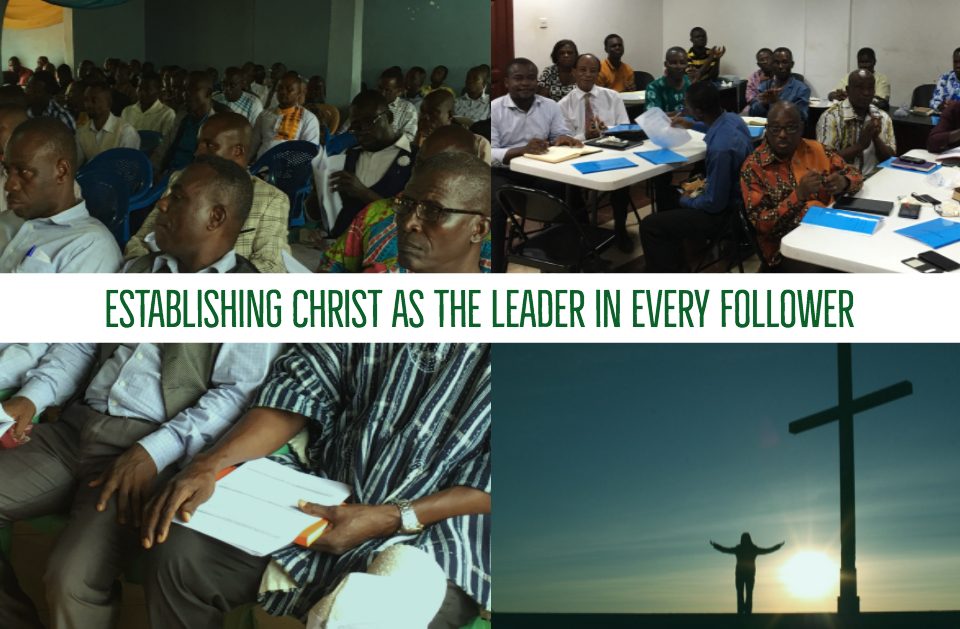
The Pastor as Public Theologian: Is This His Role?
November 1, 2018
2 Corinthians: The Supreme Pastoral Letter – Interview with Phil Smith
December 27, 2018The Relationship of the Old Testament to the New Testament
Reposted with kind permission of the Table Podcast.
In this episode, Drs. Mark Yarbrough, Darrell L. Bock, Mark Bailey, and Pastor Andy Stanley discuss the relationship of the Old Testament to the New Testament, focusing on communicating biblical truth to a variety of audiences.
Timecodes below:
00:15 Yarbrough introduces Bock, Bailey, and Stanley
02:03 How does Acts 15 fit into Luke’s work as a whole?
05:48 What is the central issue in Acts 15?
10:50 How did Gentiles become Christians in the 1st Century?
18:14 Explaining Acts 15 to new believers today
21:39 Letting go of the old covenant and an improper view of the law
27:19 The role of the Old Testament in various evangelistic contexts
33:13 Understanding your audience when defending the faith
38:59 Talking about the Bible with skeptics and young believers
42:16 Contrasting the New Testament with the Old Testament
48:11 The relevance of the Old Testament for Christians
53:30 Reframing Christian terminology for a popular audience
Mark Yarbrough:
Welcome to the Table Podcast, where we discuss issues of God in culture. My name is Mark Yarbrough. I serve as the VP for academics and academic dean, teaching in the Bible exposition department.
And our topic today, here on the Table Podcast, is, broadly speaking, the relationship of the Old Testament to the New Testament. And we’re gonna break this up into three distinct categories. But that’ll be a great dialogue for us. It’s timelesls. It’s something we need to be thinking about on a regular basis.
And I’m joined here with three wonderful guests and friends. To my left is Dr. Mark Bailey. He serves as the president and senior professor of Bible exposition. It’s always good to have you involved in these discussions.
Mark Bailey:
Great to be here.
Mark Yarbrough:
To my right is Dr. Darrell Bock, the executive director of cultural engagement and research professor in New Testament studies. And I tell you what; it’s safe to say that, in this regard, the table has turned.
Darrell Bock:
Correct.
Mark Yarbrough:
You usually sit right here –
Darrell Bock:
That’s right.
Mark Yarbrough:
– and host and facilitate these discussions. But tonight –
Darrell Bock:
And I’m at your right hand. [Laughs]
Mark Yarbrough:
You are at my right hand, there you go.
We are also joined by Andy Stanley. Andy thank you for joining us.
Andy Stanley:
Yeah.
Mark Yarbrough:
Greatly appreciate that. He is live right now in Atlanta, Georgia. And many people know Andy, founder, if you will, of North Point Ministries. Andy, correct me if I’m wrong, but you are still pastoring and preaching at the Buckhead campus in Atlanta, is that correct?
Andy Stanley:
That’s right; I’ve been there about a year.
Mark Yarbrough:
An author and frequent conference speaker. And so, thanks for joining us. This is gonna be a great discussion today.
Andy Stanley:
And Dallas grad, don’t forget that.
Mark Yarbrough:
And a Dallas Theological Seminary graduate.
Andy Stanley:
Yes.
Mark Yarbrough:
That’s right, indeed. So, thanks for hopping in on this one today. We’ve got some fun things to talk about. And so, broadly speaking again, in the connections of the Old Testament to the New Testament, we’re actually gonna jump in into a topic into the New Testament – okay? – because this issue comes up. And it frequently surfaces in all sorts of discussions of theological dialogues.
It is an issue that seems to rear its head every so often in evangelism about showing the connectivity between the Old Testament and the New Testament. And so, Dr. Bock, you wrote a little pamphlet on the book of Acts.
Darrell Bock:
A pamphlet is probably not the right word.
Mark Yarbrough:
Was that good? It took you several years to write that pamphlet.
Darrell Bock:
That’s exactly right.
Mark Yarbrough:
But you wrote this commentary. So, I’m gonna come to you first on this question, because we’re gonna move into a dialogue that takes place in Acts chapter 15. But before we do, can you frame the book of Acts? Just a little answer. You know, just succinctly. But what’s the broad overview of the book of Acts, and how can we think about Acts chapter 15 fitting into the book as a whole?
Darrell Bock:
Okay. Well, Acts is actually a second volume tied to the gospel of Luke. So, it’s Luke-Acts together. Together they constitute – Luke has written more of the New Testament than any other writer. Some people think that’s Paul, but it’s actually Luke – by a nose, but he makes it. And he is trying to explain how what appears to be a new religious movement is actually a quite old movement that in the ancient world, it wasn’t what was new that was important, but what had been time-tested, particularly when it comes to religion and that kind of thing.
Christianity appeared to be the new thing on the block, and it also had a surprising element to it, and that is that it was attempting to bring Jews and Gentiles together. That was controversial because of the history that existed between Jews and Gentiles and the need for reconciliation between those groups.
And so, Luke is really the story of how the gospel was intended to be for all people, and it was designed to be that way from the time God made His covenant commitments to Abraham.
Mark Yarbrough:
Sure.
Darrell Bock:
And so, this new thing is actually old. It goes back to the patriarchs, and he’s trying to show those connections and yet also trying to deal with the differences that this combining of these two ethnic groups brought to the program of God.
So, you’ve got continuity and discontinuity literally located in chairs next to one another, and theologians have wrestled with that dance –
Mark Bailey:
Oh, yes.
Mark Yarbrough:
Right.
Darrell Bock:
– ever since the music started playing.
Mark Yarbrough:
Yeah, the continuity and the discontinuity. Okay, well, now, take me further, then, into Acts 15. What is going on in Acts 15? How does that then fit into this question of continuity and discontinuity?
Darrell Bock:
Well, Acts 15’s right in the middle of that transition. And what had happened, of course, is the gospel had gone out to Gentiles. And the question had become, “Do Gentiles in effect have to become Jews in order to become Christians?”
Now, I didn’t mean to confuse you there, but it’s – but that’s basically it. Do they have to engage in circumcision, which was the sign of the covenant commitment made to Abraham, in order to be Christians?
And, of course, what had happened with Cornelius was Peter had preached the gospel, and the Spirit had come down on them, indicating that God had accepted them without them having to have – having to have participated in circumcision.
So, when we get to Acts 15, and that gets explained, that actually becomes a key to how that situation is resolved. And the answer becomes, “Gentiles don’t have to become Jews and don’t have to connect to the Law at that point in order to receive the benefits that come through Jesus Christ.
Mark Yarbrough:
Yeah, interesting way of phrasing that, “Do the Gentiles have to become Jews before they become Christians?” Andy, jump in on this one. What – you have done an awful lot of teaching and communication, in particular through the book of Acts and Acts 15. What do you understand, as you’re communicating this, is the central issue? And connect this from what you understand to be larger issues in Christianity.
Andy Stanley:
Yeah, I think this is, in terms of just the local church, this is a passage of Scripture that I’ve never heard. I’m sure there are a lot of sermons on it, but generally, it’s an overview of Acts. But the decision and the implications of the decision that were made, I think, have specific and direct ramifications on the local church.
To begin with, I think – and you guys weigh on this – weigh in on this – I think it is impossible for us to understand the emotion of that meeting. That this group of people – and correct me if I’m wrong – but this is nineteen or twenty years after the resurrection. So, for 19 years or so, there has been this tension within the local church, and finally it’s come to a head.
So, this isn’t, you know, two weeks after the resurrection, “What are we gonna do?” This tension has been building and building and building, and now, as we’ve already talked about, you have many, many Gentiles who have embraced the faith and are now being asked to embrace not just circumcision, and not just the Law, but this is a way of life. This is – the old covenant is a worldview. It encompasses everything; it touches on everything.
And so, finally, after 20 years, the leaders of the Jerusalem church realize, really, how realistic is it for Gentiles not to simply be circumcised, but to – I mean as they’d – I guess it was Peter who said, “Guys, really, I mean it’s difficult enough for us to carry this. Do we really expect the Gentile world to basically relearn everything?”
So, my point being I don’t think – and we can fully appreciate the – I don’t know if “sacrifice” is the right word, but the concession that these Jews in Jerusalem, who have been brought up – for whom this was a way of life, the concession they made by saying, “You know what? We are going to essentially” – I don’t want to use the word “unhitch” ’cause nobody likes that word – “We’re essentially going to allow Gentiles to develop, in a sense, their own approach to faith and not require them to do what basically has characterized our lives forever.”
So, you know, in John 17, when Jesus prays for unity, this was an extraordinary, extraordinary step of unity. And we can get into this later, but when they write the letter to the Gentiles in Antioch, from a theological perspective, we get all tied up into what were those requirements.
And my point is they – this was not asking – this wasn’t about law keeping; this was about peace keeping. This was everybody’s got to make concessions. Because at the end of the day, we cannot have two churches. We can’t have the Jewish church and the Gentile church. So, whatever it takes, there needs to be one church.
This was an extraordinarily emotional meeting, and the decision they made, I don’t think we can even begin to comprehend just what a big day that was. And again, I tell the folks in our church, when I preach on this, “Hey, we are the folks in Antioch. Okay? We’re in Antioch waiting on their decision. Their decision impacted every single one of us who are Gentile believers.”
Darrell Bock:
And I think it’s important to appreciate that this actually was a revisit of the question, that after Peter had been with Cornelius and stayed with Cornelius, initially there was a huge pushback in Acts 11 to say, “Peter, you did the wrong thing. You shouldn’t have stayed with them; this isn’t right.”
And he walked through – his response was basically, “Your complaint isn’t against me; your complaint is against what God did in our midst, as I was in the midst of preaching.” I like to tease people that when Peter was giving his speech, he never got a chance to warm up the organ and give the invitation because God acted before he was done.
For the rest of the transcript go here:
ABOUT THE SPEAKERS:








